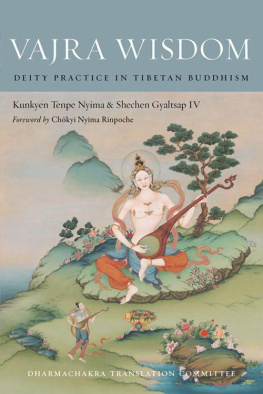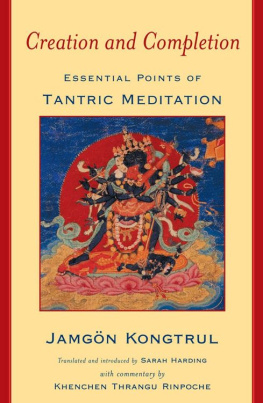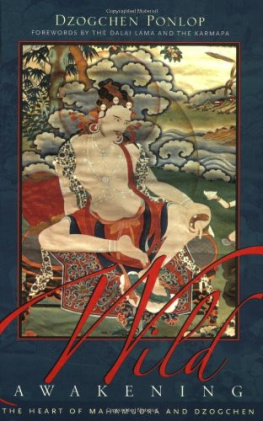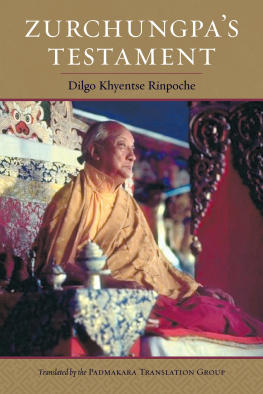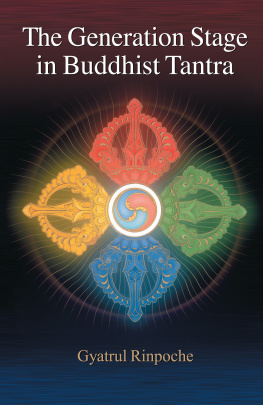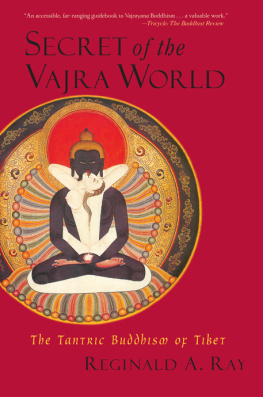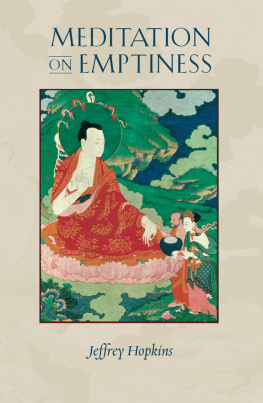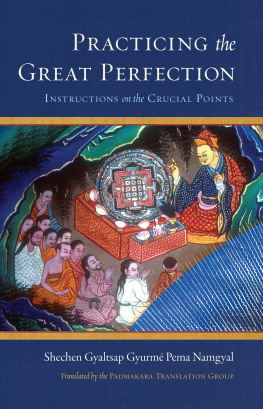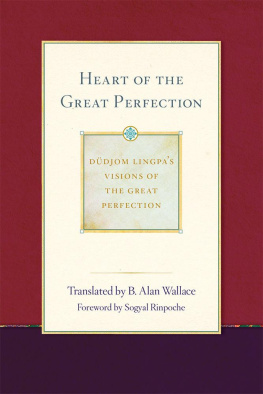As more and more people embrace the Tibetan Buddhist path with sincerity and dedication, priceless instructions like these by the great masters of the past take on a crucial importance. Only with such clear and practical guidance can we fully appreciate the depth of the extraordinary practices of the Vajrayana, and discover for ourselves their transformative power.
Sogyal Rinpoche, author of The Tibetan Book of Living and Dying
ABOUT THE BOOK
Vajra Wisdom presents the commentaries of two great nineteenth-century Nyingma masters that guide practitioners engaged in development stage practice through a series of straightforward instructions. The rarity of this kind of material in English makes it indispensable for practitioners and scholars alike.
The goal of development stage meditation in the Tibetan Buddhist tradition is to directly realize the inseparability of phenomena and emptiness. Preceded by initiation and oral instructions, the practitioner arrives at this view through the profound methods of deity visualization, mantra recitation, and meditative absorption.
The Dharmachakra Translation Committee draws its inspiration from the vision, commitment, and magnificent achievements of past Buddhist translators. Directed by Chkyi Nyima Rinpoche, the Committee is dedicated to making Buddhist classics available to modern readers in their native languages.
Sign up to learn more about our books and receive special offers from Shambhala Publications.

Or visit us online to sign up at shambhala.com/eshambhala.
V AJRA W ISDOM

Deity Practice in Tibetan Buddhism

Kunkyen Tenpe Nyima and
Shechen Gyaltsap IV
FOREWORD BY
Chkyi Nyima Rinpoche
Translated by the
Dharmachakra Translation
Committee
S NOW L ION
Boston & London
2012
Snow Lion
An imprint of Shambhala Publications, Inc.
Horticultural Hall
300 Massachusetts Avenue
Boston, Massachusetts 02115
www.shambhala.com
2012 by Dharmachakra Translation Committee
Cover art: Saraswati by Pema Namdol Thaye
Cover design by Gopa&Ted2, Inc.
All rights reserved. No part of this book may be reproduced in any form or by any means, electronic or mechanical, including photocopying, recording, or by any information storage and retrieval system, without permission in writing from the publisher.
Library of Congress Cataloging-in-Publication Data
Bstan-pai-i-ma, Kun-mkhyen, 19th century.
[Bskyed rim gyi zin bris cho ga spyigros ltar bkod pa man ag kun btus. English]
Vajra wisdom: deity practice in Tibetan Buddhism / Kunkyen Tenpe Nyima and Shechen Gyaltsap IV; foreword by Chkyi Nyima Rinpoche; translated by the Dharmachakra Translation Committee.
pages cm
Includes bibliographical references.
eISBN 978-0-8348-2900-8
ISBN 978-1-55939-397-3 (alk. paper)
1. MeditationRi-ma-pa (Sect) 2. Ri-ma-pa (Sect)Rituals.
I. e-chen Rgyal-tshab Padma-gyur-med-rnam-rgyal, 18711926. Bskyed rim spyii rnam par bag pa u gsal go bder brjod pa rab gsal nor bui me lo. English. II. Dharmachakra Translation Committee, translator. III. Title.
BQ7662.6.B7813 2012
294.3923dc23
2012016843
C ONTENTS

by Kunkyen Tenpe Nyima
by Shechen Gyaltsap Pema Namgyal
P UBLISHER S N OTE

This book contains Sanskrit diacritics and special characters. If you encounter difficulty displaying these characters, please set your e-reader device to publisher defaults (if available) or to an alternate font.

O UR COMPASSIONATE T EACHER , the perfectly enlightened Buddha, offered those in need of guidance an inconceivable number of Dharma teachings. These can all be condensed into the categories of stra and tantra. The latter of these two, in turn, contains the ocean of tantras, statements, and oral instructions.
In India and Tibet the practice of this vajra vehicle of Secret Mantra flourished and the number of practitioners who gained liberation through these practices is truly beyond count. Today the legacy of these great beings is still with us in the form of an uninterrupted lineage of realized masters who uphold the teachings and practices of the vajra vehicle. In this way it is still in our hands to connect with this tradition and make enlightenment a living experience for us as well.
To accomplish this we must rely on living lineage masters and key scriptures that outline the practice and theory of tantra. I am therefore pleased to present translations of two important guidance manuals concerned with the practice of tantra. Both Kunkyen Tenpe Nyima and Shechen Gyaltsap were extraordinary teachers, and today their works are among the most cherished scriptures on the practice of the development stage. In fact, although both texts focus predominantly on the development stage, the key points of the whole of tantric practice are all contained in these pithy instructions. I am therefore confident that sincere practitioners will find great inspiration and guidance in these precious texts.
Even though the message laid out in these translations is generally clear and ready to be applied, it is of utmost importance to first receive the guidance of a realized master of the lineage. Only by connecting with such a master and receiving empowerment, reading transmission, and oral instructions are we fully able to benefit from the tantric path. In fact, it is said that, without the blessing of a realized master, the practice of tantra is likely to do more harm than good. Still, if practiced correctly, these teachings have the potential to transform your being into the state of complete awakening in a short time span and through only little hardship. Such is the power of the tantric path. I therefore sincerely request all readers to study these texts under the guidance of a genuine master of the lineage.
May the precious wisdom of the practice lineage spread and flourish throughout the world and may this publication be a positive circumstance for that. In this way, may all sentient beings quickly traverse the path of the four knowledge holders and awaken to the full and complete enlightenment of the four bodies and five wisdoms.

O VER THE LAST forty years Buddhism has spread to all corners of the world. In this process, Tibetan Buddhism has often been represented in ways that play into our need to re-enchant an increasingly materialistic world with the magic, drama, and supernatural elements of a lost wisdom nurtured in isolation on the roof of the world. For this approach to Buddhism, the development stage, with its attention to colorful deities, magical mantras, and exotic rituals, has become a popular form of practice. Deity practice is ripe with evocative and inspiring imagery that seems a perfect cure for our weariness and disenchantment with the ordinary world. And these practices, which today are performed at numerous Dharma centers around the world, do undeniably help build communities and provide devotees with a ritual register and a sense of belonging. Still, in recent years, it has become clear to many Western practitioners of Tibetan Buddhism that the development stage is a much richer practice than what first meets the eye.
Next page
